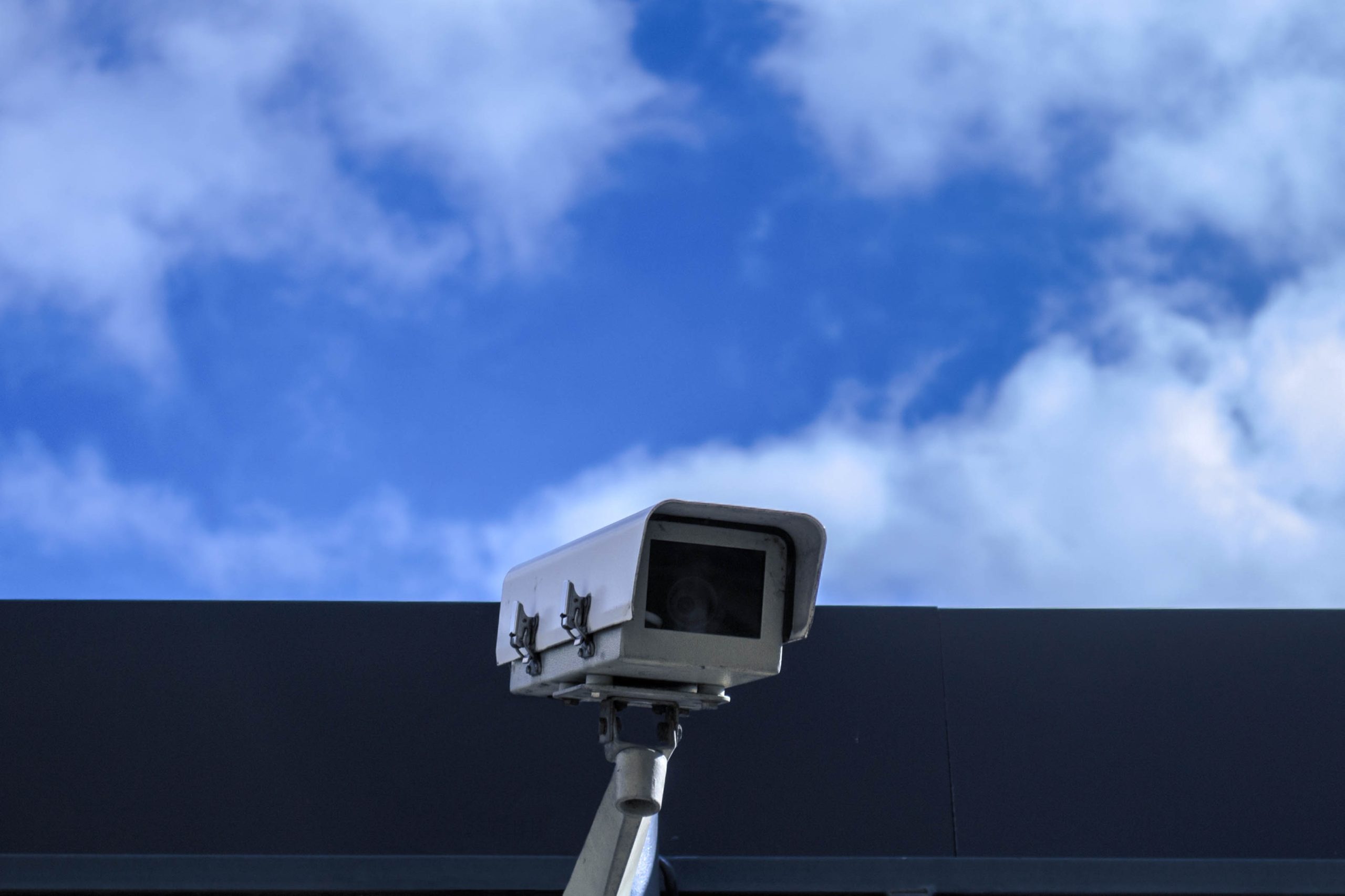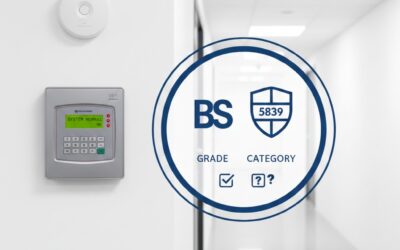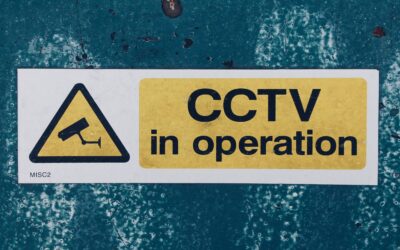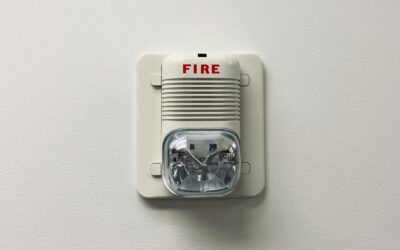CCTV Installation has gone from being something only deployed by businesses and local authorities to being an accessible security option for homeowners. Changing technology has made CCTV more affordable and accessible to a wider range of people. At the same time, the capabilities of CCTV has improved, with people now able to monitor their property from a mobile device wherever they are in the world. From simple single-camera options to more complex monitored systems, CCTV is one of the most robust security solutions available today. What is CCTV? In this article, we’ll attempt to clear up some of the confusion around CCTV, outline what it means, why it’s important when it comes to security and the benefits it can deliver.
What does CCTV stand for
It’s a well-known acronym but many people don’t know what it really means. What is CCTV and what does CCTV stand for?
CCTV stands for Closed Circuit Television, which means that any footage that is captured is transmitted to a limited audience. Today, CCTV systems are mostly used for security purposes, but in the past, they often had a range of other applications and are still used today to facilitate industrial processes and scientific research.
Closed-circuit television systems allow for focused monitoring and surveillance of particular areas of the building. This is very useful for parts of a building that may not see much foot traffic during the day, making them particularly vulnerable to intruders. CCTV is a simple, yet powerful tool to radically improve your overall security, and its physical presence can act as a deterrent in its own right. As most criminals are opportunists, the sight of CCTV cameras will usually be enough to make them think again.
CCTV works by strategically placing cameras around a building. The input to these cameras is then monitored via screens elsewhere. The cameras, monitors and/or recorders communicate across a coaxial cable run or a wireless communication link. Access to the footage is limited to authorised users.
In the past, CCTV systems used low-resolution black-and-white monitors that provided a limited capacity for user control. Modern CCTV systems can produce high-resolution colour footage with the capability to zoom in, track and reverse footage to provide added clarity. They will also often feature the capability to speak to people within the range of the camera’s speakers.
Check out our article on A Brief History of CCTV
Why are cameras called CCTV?
Cameras are called CCTV when they are part of a comprehensive closed-circuit television system. The cameras are on part of the CCTV system, along with monitors and the means of transmission whether that’s cables or wireless transmission. There may also be other components such as speakers and microphones.
Understanding CCTV meaning and purpose can help you decide if CCTV is appropriate for your premises, whether domestic or commercial.
Are security cameras the same as CCTV?
Security cameras and CCTV are two terms that are often used interchangeably but there are some important differences between the two. CCTV is a complete system that facilitates surveillance of a building via a monitor or mobile devices. As well as cameras, it can also include monitors and a means of transmitting the footage captured by the cameras, whether that’s cables or wireless transmission.
The choice of camera technology and monitoring used will depend on the layout of the site and its particular security requirements. The security and surveillance required in a busy shopping centre will be different to that required at a domestic property. Security and surveillance cameras can also play an important role for businesses and organisations engaged with traffic and crowd management. Different cameras will be appropriate for different settings and some security installations will require different functionality.
For many homeowners, a basic camera system with wireless transmission that allows them to access camera footage wherever they are is adequate for their needs. In most cases, the presence of CCTV cameras alongside other security measures such as automatic gates or burglar alarms, will provide very high levels of domestic security.
Systems such as ANPR which were once reserved for the police and other security services are now available for businesses and domestic users. This detects vehicle registration numbers and tracks vehicle movements and can be used alongside access systems such as automated gates. Deploying a CCTV system that incorporates ANPR technology puts you in a position to record and track vehicles that access and leave your site. This gives you invaluable information that can be used in the event of a crime being committed.
Remotely monitored CCTV systems use cutting-edge technology that connects a CCTV system via the Internet to a secure monitoring station. This can be monitored either by the property owner or manager or by security personnel. It can be monitored 24/7 or during selected hours, often outside of normal business hours, or when the property will be empty.
Smart security systems inform security personnel in the event of an alarm being activated. To enhance the view, cameras can be zoomed or re-aligned to provide the best possible viewpoint. Remote monitoring systems can also incorporate tonoi and alarm systems, allowing security personnel to communicate with anyone captured by the camera footage.
Monitored CCTV systems allow for a quick response to any incident, with police or security personnel able to get on-site as fast as possible.
Different cameras are generally used for different settings and purposes to provide the degree of security monitoring required.
Why is CCTV important in security?
CCTV systems are a key component in security across commercial, public and domestic settings. They help to provide a surveillance capacity within security systems, adding extra protection to other security measures such as burglar alarms and automated gates.
The presence of visible CCTV cameras will frequently act as a deterrent to potential criminals. When criminals know that their actions are being recorded and may be used as evidence later, this can actively discourage criminal activities. Because of the deterrent factor, and the ability of CCTV to monitor and record activities in real-time, CCTV systems actively contribute to preventing crimes.
If a crime does take place, then CCTV footage can provide valuable evidence that support investigations and prosecutions. It provides a visual record of events enabling the identification of suspects, understanding timelines and the sequence of events that took place during the incident.
CCTV systems allow for continuous monitoring of an area. This can be particularly important in parts of the building where there is relatively low footfall during the day, and at night. This gives security personnel real-time information about activities around their site. This is essential for not only identifying criminal activities but also being able to spot any potential security threats early on.
In workplace and public spaces, CCTV can help to ensure the safety of employees and the general public. It can be used to monitor safety hazards and to ensure a swift response to any potential accidents and emergencies. If there is unauthorised access, then security personnel can be quickly alerted. CCTV can be used to verify the identity of visitors before access is granted to residential buildings, offices and public buildings.
CCTV footage can provide valuable documentation of incidents, security breaches and any accidents. This can be used to support insurance claims, internal investigations and legal proceedings. Advances in technology allow for the remote monitoring of CCTV systems from several different locations. Security personnel in a centralised control centre can monitor a range of sites concurrently improving efficiency.
What are the benefits of CCTV?
What is CCTV and what are the benefits of installing a CCTV system at your premises?
Closed-circuit television systems are now widely regarded as an essential component of any commercial security system. It adds an extra layer of security and gives depth and resilience to an overall security strategy.
- Monitor Outdoor & Hard to Reach Areas
CCTV allows you to closely monitor parts of the premises that cannot easily be seen. This might be hard-to-reach areas such as courtyards, passages and driveways. This gives you comprehensive security coverage for either continual remote monitoring or for recording footage that can be reviewed at a later date.
- Active Deterrence
The first line of defence provided by CCTV is as a deterrent. The very presence of CCTV, which will often be signalled by signage even if the cameras are not easily visible, deters all but the most determined criminals from attempting to access the premises. It’s important to remember that most criminals are opportunists, and CCTV presents an added complication that most criminals will be keen to avoid. When combined with other security elements such as burglar alarms and automated security gates, most domestic and commercial premises will radically reduce the risk of falling victim to crime.
- Peace Of Mind
By providing high levels of deterrence CCTV systems provide valuable peace of mind for home and business owners. When they are linked to remote monitoring systems they provide continual real-time reassurance that your property is safe and secure. As soon as a potential incident is spotted you will receive a notification and action can be taken. Conversely, if you don’t receive notification you can be confident that your property is safe and won’t be returning to your premises to discover that a break-in, vandalism or other security breach has occurred.
- Valuable Evidence
In the event of a crime taking place the footage recorded by the CCTV system can provide valuable evidence to aid investigations and improve the chances of identification. Footage may also play a part in building a viable case for prosecution and could assist with retrieving lost property.
- Visitor Identification
CCTV will frequently be deployed at entry points, such as the front door, reception, or driveway. This enables residents and on-site security to quickly identify visitors before they are granted access. This enhances personal safety and security and reduces the risk of unauthorised access.
- Reducing False Alarms
CCTV can provide rapid verification of a potential incident allowing for false alarms to be identified and disregarded. This ensures that security personnel, police or other emergency services are only deployed when necessary.
- Reduced Insurance Premiums
Because of the reduced risk of premises with CCTV falling victim to crime, insurance premiums for the property may be reduced accordingly.
CCTV Systems from Protive Security & Surveillance
If you’re considering a CCTV system for your business or domestic premises, then Protive Security & Surveillance can help. Our team take time to find out about your particular security needs and can design, install and maintain the optimum system for your requirements. We offer CCTV services in Manchester, and Liverpool
Contact us to find out more about CCTV and how it can enhance your security.





